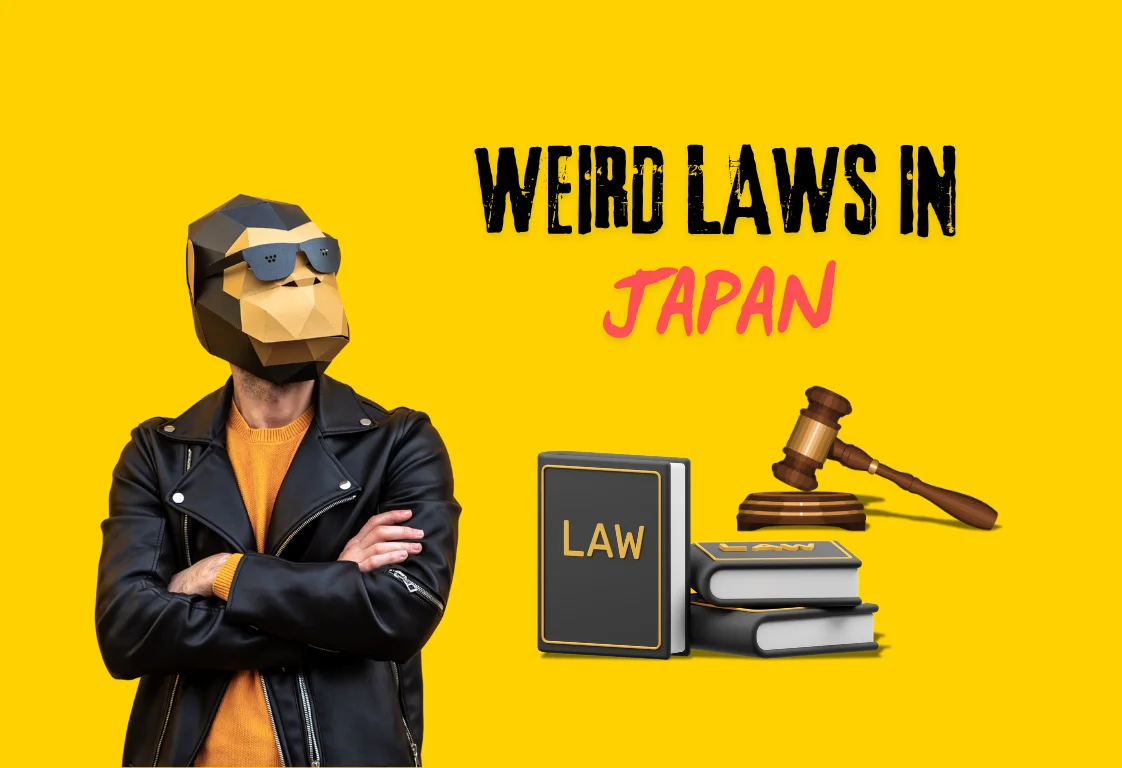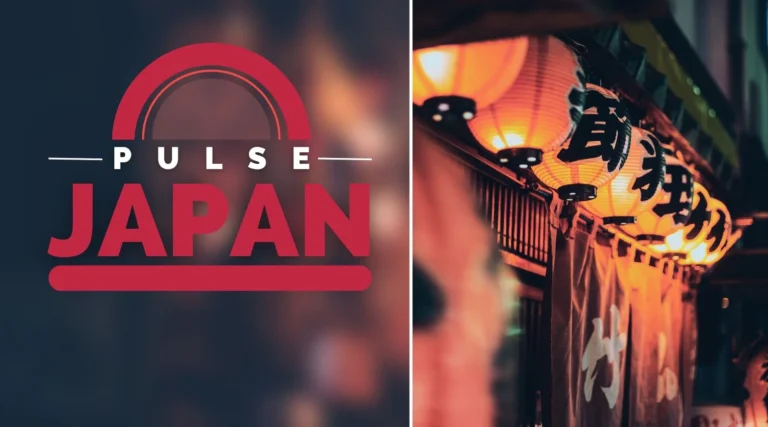Weird Laws in Japan: Complete Guide to Strange Rules and Regulations
Japan is famous for its rich traditions, modern technology, and social discipline. Yet, beneath the orderly structure, there are laws that appear unusual or even bizarre to outsiders. These weird laws in Japan exist due to cultural values, historical policies, and local government regulations.
This guide explores the most unique rules in detail, supported with facts, categories, and examples.
Why Japan Has Weird Laws:
The presence of weird laws in Japan is linked to three main factors:
-
Cultural Preservation – Laws protect traditions and social etiquette.
-
Post-War Governance – Many rules stem from occupation-era reforms.
-
Public Harmony – Laws prioritize community peace over individual preference.
Unlike other countries, Japan integrates moral, cultural, and administrative codes into its legal system.
Weirdest Laws in Japan:
Here is a structured list of laws considered strange by international standards:
-
Ban on late-night dancing in clubs (historical Fueiho Law).
-
Tattoo restrictions in public baths and gyms.
-
Street smoking bans in major Tokyo wards.
-
Bicycle fines for umbrellas or phone use.
-
Mandatory garbage sorting with multiple categories.
-
Obscenity law requiring pixel censorship in adult media.
-
Fortune-telling business regulations against fraud.
-
Vending machine curfews for alcohol sales.
-
Onsen bathing etiquette laws with hygiene rules.
-
Noise restrictions on wooden footwear at night.
Overview of Weird Laws in Japan:
| Law / Rule | Details | Reason for Existence |
|---|---|---|
| Dancing Ban (Fueiho Law) | Restricted night dancing until 2015 | To control crime in post-war nightlife |
| Tattoo Restrictions | Bans tattoos in many public baths | Association with yakuza syndicates |
| Street Smoking Bans | Prohibits smoking in busy districts like Shinjuku and Chiyoda | To prevent litter and second-hand smoke |
| Bicycle Usage Laws | Fines for umbrella holding, phone use, or no lights at night | To ensure traffic safety |
| Garbage Sorting | Requires separating waste into multiple categories | To optimize recycling and waste management |
| Obscenity Censorship (Article 175) | Mandatory pixelation of explicit images | To preserve public morality |
| Vending Machine Rules | Alcohol machines require IC cards and curfews | To prevent underage consumption |
| Noise Ordinances | Restricts geta sandals and loud mufflers at night | To protect neighborhood peace |
| Public Bath Etiquette | Bans towels, splashing, and tattoos in onsen | To maintain hygiene and tradition |
Strange Smoking Rules in Japan:
Japan enforces unique smoking rules that confuse tourists. While cigarette vending machines are common, smoking on streets is banned in many districts. Instead, smokers must use designated smoking areas even outdoors.
Tokyo, Chiba, and Kanagawa prefectures impose fines for violators. This duality—easy purchase but strict usage—makes smoking laws in Japan stand out.
Dancing Restrictions and the Fueiho Law:
The Fueiho Law of 1948 banned late-night dancing in clubs. Venues required licenses and bright lighting to operate. Authorities feared that dance halls promoted prostitution and disorder.
The ban was lifted in 2015, but restrictions on noise and lighting in entertainment districts remain. The law is remembered as one of Japan’s strangest rules.
Tattoos and Legal Restrictions:
In Japan, tattoos symbolize yakuza affiliation. Many gyms, pools, and hot springs deny entry to tattooed individuals.
In 2020, Japanese courts debated whether tattooing is a medical act, sparking legal disputes. While tattoos grow popular among young people, stigma in law and business environments continues.
Garbage Sorting and Waste Disposal Laws:
Japanese waste laws are among the strictest in the world. Residents must separate garbage into burnable, non-burnable, PET bottles, cans, plastics, and more.
Each city issues guides and schedules for disposal. Bags must be transparent for inspection, and incorrect sorting may result in penalties. This law is one of the most challenging for foreign residents.
Bicycle Laws and Fines:
Cyclists in Japan face detailed regulations. Rules include:
-
Use of front lights at night.
-
Ban on holding umbrellas or phones.
-
Obligation to ride on designated paths.
-
Prohibition of cycling under alcohol influence.
Tokyo also introduced compulsory bicycle insurance in 2020. These laws ensure safety but feel strict to outsiders.
Censorship and Obscenity Laws:
Japan enforces Article 175 of the Penal Code, which prohibits distribution of obscene materials. Publishers must pixelate sexual content, a rule unique to Japan.
Courts balance this with freedom of expression, but the law has led to international debate about censorship practices.
Vending Machine Restrictions:
Japan has over 4 million vending machines, selling drinks, meals, and even umbrellas. Alcohol vending machines are restricted by law:
-
Only accessible with IC verification cards.
-
Banned near schools.
-
Curfews applied in certain prefectures.
Despite these restrictions, vending machines remain iconic in Japanese cities.
Weird Etiquette Laws in Public Baths:
Onsen and sento bathing rules are enforced by municipal health codes. Prohibitions include:
-
Entering with soap or shampoo residue.
-
Bringing towels into the bath.
-
Swimming or splashing.
-
Entering with visible tattoos.
These laws preserve hygiene, cultural etiquette, and public safety.
Sound and Noise Restrictions:
Japan enforces strict noise laws under the Noise Regulation Law of 1968. Examples include:
-
Limits on karaoke bar sound levels.
-
Restrictions on fireworks in residential areas.
-
Bans on modified car mufflers.
-
Rules against wooden geta sandals at night.
These sound rules reflect the cultural emphasis on community harmony.
FAQs About Weird Laws in Japan:
Q1. Can tourists get arrested for breaking weird laws in Japan?
Yes, tourists can face fines or warnings for violations such as street smoking, improper garbage disposal, or cycling without lights.
Q2. Are tattoos illegal in Japan?
Tattoos are not illegal, but they are heavily restricted in public places like baths and gyms due to yakuza associations.
Q3. Why does Japan censor adult content?
Japan censors adult content under Article 175 of the Penal Code to protect public morality, though the law is debated internationally.
Q4. Is public dancing illegal in Japan?
Public dancing was banned under the Fueiho Law until 2015. Today, restrictions remain in certain entertainment areas.
Q5. Do vending machines sell alcohol at night in Japan?
Some vending machines are restricted by curfew laws. Others require adult ID verification through IC cards.
Learn More: Taxi with a 2-Year-Old Japan Law: Complete Guide for Parents and Travelers
Japan Weird Laws for Tourists: Complete 2025 Guide
Conclusion:
Weird laws in Japan are deeply tied to history, culture, and social order. From tattoo bans to strict garbage sorting, these rules may appear unusual to foreigners but serve practical purposes within Japanese society. Understanding these laws provides insight into Japan’s unique balance between tradition and modern governance.






